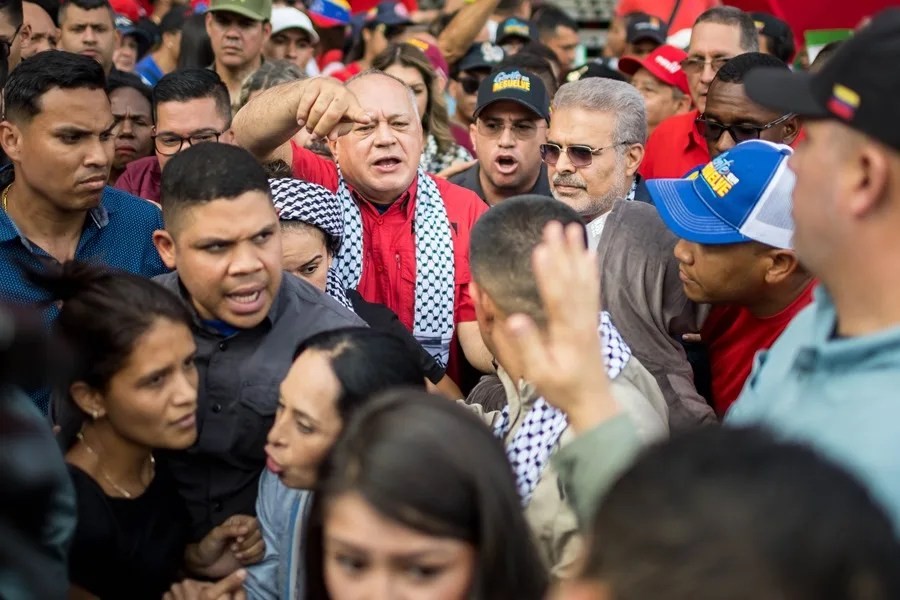Venezuela’s Border Security Claims Clash With Colombia’s Realities: A Closer Look at Cabello’s Assertions
Amid rising tensions, Venezuela claims to have its borders with Colombia tightly secured, but evidence and regional instability suggest otherwise—raising urgent questions for America’s southern security interests.

In a recent statement broadcast on Venezuelan state television, Interior Minister Diosdado Cabello proudly asserted that Venezuela’s borders with Colombia are “resguardadas, cuidadas al extremo” (closely guarded) by police and military forces. However, his confidence sharply contrasts with both Colombia’s persistent reports of armed groups operating cross-border and the ongoing narcotics trafficking that directly threatens regional stability — and by extension, American security.
Are Venezuela’s Border Guards Truly Holding the Line?
Cabello’s claim ignores the inconvenient reality acknowledged even by Colombian President Gustavo Petro: violent guerrilla factions like the ELN and Second Marquetalia continue to wage war in and around border regions spanning both countries. These groups’ ability to move drugs and militants freely across Venezuela’s side undermines any narrative of robust border control. How can we trust Caracas’ assurances when multiple reports indicate “decenas de toneladas de cocaína” (tens of tons of cocaine) have been trafficked through Venezuelan territory—with complicity hinted among corrupt officials?
The minister’s boast that Venezuelan forces thwarted “more than five attempts” to establish narcotrafficking camps recently does little to offset years of documented lawlessness aided by regime complicity or negligence. Such sporadic crackdowns appear more symbolic than systemic, failing to address the root problem: a government system that often enables illicit actors as part of its geopolitical strategy.
Why Should Americans Care About This Border Dispute?
This isn’t just a regional squabble; it directly impacts U.S. national sovereignty and homeland security. The porous Venezuela-Colombia border serves as an active corridor for narcotics destined for American cities and fuels violence that destabilizes Latin America—our hemisphere. Washington must question how much cooperation is genuinely possible when Caracas publicly dismisses concerns about cross-border threats while downplaying or denying the presence of terrorist-linked groups.
Moreover, Cabello’s indirect criticism of Colombia’s efforts reveals a refusal to take responsibility that mirrors broader regime failures under Nicolás Maduro—a government whose policies jeopardize freedom, rule of law, and economic prosperity in favor of authoritarian control aligned against American interests.
As families in the U.S. endure the consequences of drug-related crime and drug influxes linked to this corridor, it is crucial that policymakers prioritize assertive actions grounded in America First principles—strengthening border security not just at home but also supporting stable neighbors who commit to combating illicit networks honestly.
The contrast between Venezuela’s self-congratulatory rhetoric and Colombia’s candid warnings poses an urgent question: How long will Washington tolerate this duplicity before demanding accountability? Without real pressure for transparency and reform from Caracas, the southern border crisis will only worsen.
